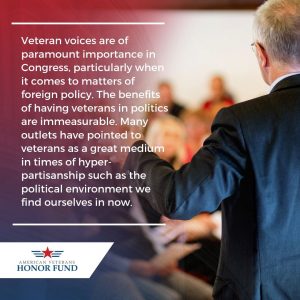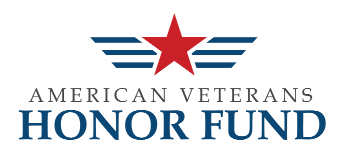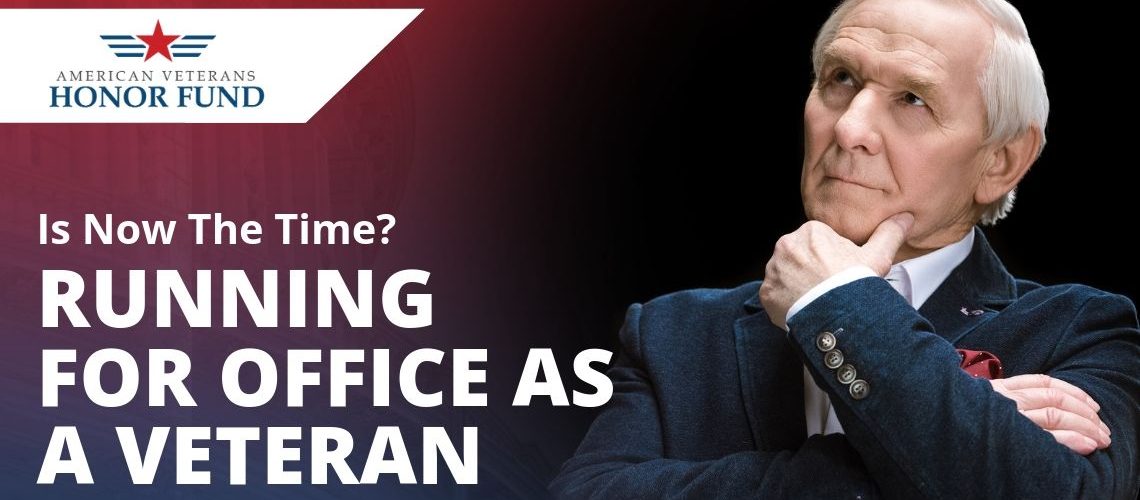In recent decades, veteran representation in government positions has waned. This is due to a variety of reasons, many of which have to do with numbers and political environment. The last “boom” of veteran activity in politics seemed to fall off after the Vietnam War era, in which political activism was a large part of the picture and more veterans were likely to run for office after completing their tours.
While veterans have increased their numbers in places such as Congress in recent election cycles — the current Congress class has 96 veterans represented — the numbers are still low. Veteran voices are of paramount importance in Congress, particularly when it comes to matters of foreign policy.
The benefits of having veterans in politics are immeasurable. Many outlets have pointed to veterans as a great medium in times of hyper-partisanship such as the political environment we find ourselves in now. Those with military experience often have more pragmatic world views borne from years of experience and exposure to a variety of high pressure environments. This provides perspective than many citizens cannot hope to replicate.
So is the upcoming election cycle the prime time to run, as a veteran? Given the political climate we currently live in and the slight increase (over recent years) in veteran representation, this would indicate that it’s a prime time to throw a name into the hat.

Veterans are well-respected among voters, often regardless of party affiliation. In fact, many would say that the Democratic party often misses a strong voting contingent in the veterans themselves. Veteran voices are respected, and they matter. What if there were more candidates with whom this group of voters (and those outside of veteran ranks, too) could truly identify with?
With the increase in opportunities available for veterans to get involved in running for office, there are now a large amount of resources for those interested. After all, running for office is a huge undertaking and it can be a long and winding road full of obstacles to experience any sort of success.
In 2018, 173 veterans ran for seats in Congress. These numbers will, with any luck, continue to increase as more veterans put their names forward for voter consideration. As these individuals set an example and encourage others to get involved, more veterans may decide to take the plunge and make a run for office.
Will veteran candidates be better received than others? Perhaps. Generally speaking, veterans meet with majority respect from both voters as well as their fellow representatives and candidates. The wealth of world experience and perspective is something that is unique and can be a great addition to any political office. As voters seek to find ways to unite the country and move forward with legislation that will benefit its citizens, veteran candidates may meet with an even larger amount of overall support.
Veterans wishing to run for office aren’t alone. There are numerous resources available to assist those who are new to the process, and even beginning at a local level or a smaller office is a great stepping stone to bigger opportunities. The coming elections may just be the prime time for veterans to increase their numbers in office, providing a uniting force and a unique perspective to their positions.
The numbers of veterans represented in political office have seen a corresponding downturn. Currently, those with military experience make up about 39 percent of Congress. This is a stark differential from the 1970s peak of over 80 percent represented in Congress seats. Are veterans truly seeing a resurgence in office? Find out here.


